Microsoft, stand up to Apple!

For a moment there I got really excited -- that Microsoft had pulled a brilliant marketing maneuver -- only to be disappointed. Within the hour I received email from the company's PR agency with subject line: "Microsoft announces Windows 8 global availability". Holy cow pies! A day early! Stop the presses. Sure enough the official press release proclaims: "Windows 8 arrives". Except it hasn't. You still have to wait until Midnight tonight. Bummer.
I knew there was trouble when rushing to Microsoft Store online that Surface RT tablets and Windows 8 are still pre-order. When going back to actually read the fine print, sure enough the press release qualifies "beginning Friday". Excuse me for nit-picking semantics, but doesn't "arrives" mean now? (Granted, it's Friday somewhere in the world and has been for more than six hours. But the announcement and New York prelaunch don't coincide with anything like Midnight anywhere in the world.)
New Chromebook is Amazon top-seller
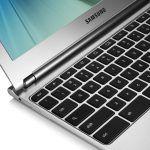
Apple should learn something from Google and Samsung. In a poll which results I'll post today, the majority of respondents tell us that iPad mini costs too much; prices start at $329. Meanwhile, the 11.6-inch Chromebook is priced just right. The WiFi model is Amazon's laptop top-seller, while the $329.99 3G model is No. 4 (and declining). Both models are sold out, like Google Play. Get one, if you can!
Many of you want new Chromebook, which swaps x86 for ARM architecture. So far, 1,770 people have responded to buying poll "Why you buy $249 Chromebook?". More than 35 percent plan to get one within 3 months, while 15.37 already placed orders. How funny if Google's Chrome OS portable turned out to be autumn's ARM sleeper sales success, and not iPad mini or Microsoft Surface.
What does Bill Gates think about Windows 8?
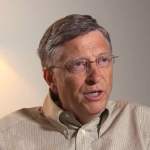
Windows XP turns 11 today, as Microsoft begins launch preparations for the big 8, starting at Midnight tonight. My colleague Tim Conneally is in New York for today's big media event. Way to go, Microsoft. Why have one Windows 8 launch day, when you can stretch it out to two? The software giant needs the extra marketing push, what with Apple rudely preempting the big day with Wednesday's last-minute iPad mini introduction and Google doing something similar on Monday with an Android event that coincides with Windows Phone 8's debut.
Windows XP and 8 represent watershed launches for Microsoft. XP brought the NT kernel, and all its stability and security advantages, to the consumer market. The operating system marked a major architectural change for developers, particularly software accessing hardware and the kernal -- that was suddenly taboo. As such, Windows XP broke many applications, mainly games, and was criticized for it. Windows 8 is in similar state of breaking the mold. For anyone forecasting the operating systems' doom, take a look back at stories about XP and analyst predictions about failure. I wrote some of them. Yet only this summer did Windows 7 finally upset XP as most widely used version. Don't count Windows 8 as dead before it comes to life, people.
Will you buy iPad mini?

For those of you skydiving from the edge of space or returning from a week in some Fringe alternate universe, today Apple announced iPad mini -- so far the autumn's worst kept secret. Rumormongers got right the event and sales dates, product name and screen size but flubbed the price; sorry it's not $249 or $299, Bub. That's in another alternate reality. But do dream.
I just have to ask, again: Will you buy iPad mini? I look forward to the impact facts will have on your answers. In February I asked: "Apple is rumored to be developing a smaller tablet. Would you buy an 8-inch iPad?" About 56 percent of the 3,624 respondents answered "Yes". That's a high number. But much has changed since, with Google Nexus 7 joining Kindle Fire at $199, Amazon offering 8.9-inch tablets and Apple choosing to price higher than many people hoped. So I ask the question again, offering new poll and your chance to comment.
iPad mini is too big for Apple

"Don't upset the apple cart" takes on new meaning for the company Steve Jobs cofounded. Supply chain simplicity defined his leadership, starting with the many products axed after he took the interim CEO title in early 1997. While complexity creeped into some product lines over the years, mainly iPod, Apple followed a streamline approach. Until today. Tim Cook oversees a suddenly complex tablet lineup, following iPad mini's introduction early this afternoon.
Before today's event, Apple offered eight different iPad configurations -- that's without separately counting carrier-specific LTE models. The mini, which goes on sale November 2, brings the number to 14. It's a crowded lineup, with overlapping features and prices not seen from Apple since the early- to mid-1990s. Something else: Apple chose to price higher than what BetaNews surveys show people want to spend on a tablet, particularly in the mini's size class, and too close to other models, risking some sales cannibalization -- or worse, none at all, if customer confusion hurts sales.
Apple unveils iPad mini, pre-orders start October 26, sales November 2

Months of rumors have come to this: Yes, Virginia, there is a smaller iPad, and if they don't sell out, you could get one for Christmas. During a special media event today, Apple unveiled iPad mini.
The new tablet's screen measures 7.9 inches, compared to 9.7 inches for fourth-generation iPad, also announced today. Screen resolution is 1,024 by 768 -- the same as iPad 2 and other tablets in the size class. The device weighs .68 pounds and is 7.2mm thick, or about one-quarter more than fourth-generation iPad. Apple claims 10-hour battery life. The tablet runs an A5 dual-core processor and packs a 5-megapixel camera on the back and another camera, mainly for video recording on the front. Contrary to rumors, prices start at $329, not $249.
Half of Apple devices already run iOS 6

Today, during a special media event, Apple CEO Tim Cook revealed that 200 million devices already have iOS 6. That works out to half cumulative shipments -- 400 million. The company may update that number during its quarterly earnings call in two days.
The number starkly contrasts with Android, where just 1.8 percent of devices are on newest version Jelly Bean. The difference demonstrates the extent of operating system fragmentation of one versus the other. Uniformity offers many advantages to developers and customers using their apps. Consider this: Jelly Bean released in mid-July, iOS 6 last month. So Apple reaches considerably more users with its newest OS than does Google. There is no comparison.
Chromebook sells out

Somebody believes Google's marketing claim that the $249 Chromebook is "for everyone". Just five hours ago, I reported the device's availability. It's not anymore. A spokesperson confirmed this evening that Google Play sold out of the portable during its first few hours of availability "with more stock coming soon".
Google introduced the new Chromebook, which uses ARM processor rather than x86 processor, on October 18, with pre-orders starting same day. What's different today: Google selling the portable direct from the Play store, alongside Galaxy Nexus and Nexus 7. Samsung manufactures the portable, which shape, 11.6-inch screen and overall size resembles Apple's MacBook Air. But Google makes a value push, by selling a computer with similar benefits for one-quarter the price.
Hulu Plus comes to Windows 8
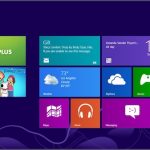
Analysts, bloggers and other pundits can't make enough predictions about Windows 8's future, whether or not the operating system launching later this week will be success, failure or something in-between. My advice: Ignore them all and look to developers. Their commitment counts, particularly when Windows goes through such major overhaul. My eyes are on those delivering services in the cloud.
Today Hulu joins a growing number of developers supporting Windows 8 and Modern UI -- what we've all come to know as Metro. Commitment from cloud service providers like Hulu is crucial to the new operating systems' consumer acceptance and is vital to the expansion into new device categories like convertibles and tablets. There is presumption among pontificating iPad idolaters that developer support for iOS is a brick wall Windows 8 and RT can't climb. Cow pies!
Chromebook is now available from Google Play

What's that saying? Something taken, something gained? Today Google Play started accepting orders for the $249 ARM Chromebook, a new item. Delivery estimate of 3-to-5 business days is typical of the shop. In my experience, buyers can expect delivery sooner. To be clear, Google isn't taking pre-orders, which started October 18 from other retailers. The computer is in stock and ready for purchase. The search and information giant only offers the WiFi version; you'll have to look elsewhere for the $329.99 3G model. BTW, the portable takes the spot long held by "coming soon" Nexus Q.
You'll read more about the new Chromebook here at BetaNews than you might like over the next week or so. That's because I see so much interest and discussion on Google+ and elsewhere on the InterWebs. Lots of people ask: "Should I buy?" For good reason. The new mobile is one hell of a value and represents a paradigm shift in laptops with keyboards -- what MacBook Air could have been had Apple chosen more affordable price and what netbooks should have been if not for Windows limitations (version licensed by Microsoft and low-powered processors).
Don't wait until October 29, pre-order Windows Phone 8 NOW!
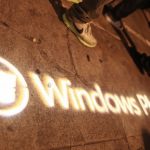
In seven days, Microsoft launches Windows Phone 8 in San Francisco. But you need not wait that long. Some retailers are already taking pre-orders (and even postponing them). HTC Windows Phone 8X is available for $99.99 on AT&T, while Nokia Lumia 920 is $149.99. Best Buy offered both today, but the Lumia since disappeared, presumably sold out. It's available elsewhere, unlocked and contract-free, for considerably more.
The Nokia handset will be available in the United States exclusively from AT&T -- that is subsidized. Mobile City Online is among the retailers carrying the international version, there for $699.99. Note that international model is unlocked but has HSPA+ instead of LTE. T-Mobile and Verizon will also carry the HTC phone. None of the retailers I checked this afternoon list arrival times, which, based on earlier manufacturer product announcements, will be November.
Google's $249 ARM Chromebook isn't 'for everyone', but could be for you [first-impressions review]
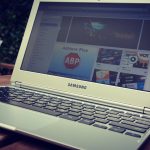
This week, Google will demonstrate real commitment to Chromebook, by bringing to market a lower-cost model with refined Chrome OS and package primed for mass-market buyers. Until retailers started taking preorders on October 18, the current generation Chromebook, Samsung Series 5 550, sold for $449 and its predecessor for $329. The newest model's $249 price is devastatingly appealing -- all but irresistible. It's almost a no-brainer "yes", particularly for most anyone wanting Apple MacBook Air's svelte size and empowering ergonomics without the hefty price tag.
But there's more here tempting than selling price. Chrome OS has reached near mass-market usability, supported by cloud apps and services that will be good enough for most people. Google even provides Chrome Remote Desktop (beta) for accessing other computers. That's right, you can connect to Macs or Windows PCs, run applications and get to data. While PC marketers and geeks focus on faster and bigger, real world performance is more measure of what you need than what they offer. The new Chromebook needs to pass the "good enough" test, and does so in many ways.
Will you buy $249 Google Chromebook?
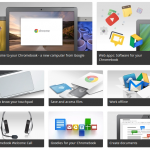
Yesterday, Google suddenly unveiled, in cooperation with Samsung, the first ARM-powered Chromebook and for remarkably affordable price -- $249. There also is a $329.99 model, that includes 3G. Both are available for pre-order now from major retailers, and Google Play will join stores selling the WiFi-only model next week.
The question: Will you buy? It's the right time to ask, because the price is so appealing. From my initial testing, about 24 hours now, it's hard not to recommend this new Chromebook, if for no other reason than price. But as I'll further explain in my forthcoming first-impressions review, there are plenty of trade-offs for the price -- and benefits, too.
Who will buy Microsoft Surface RT? Could be you
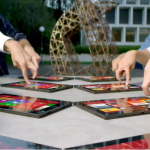
Poll results to question "Will you buy Surface RT?" are in, and the numbers are surprising. Among the 1,530 respondents so far, 43.46 percent won't buy the tablet. That's actually a considerably lower number than I expected for a new device running a new operating system from an old technology company. Just shy of 24 percent of you already pre-ordered -- and good thing. Microsoft apparently already sold out the entry-level, $499 model, which delivery date is now "within 3 weeks". The other two tablets still deliver by October 26, launch day.
Another 18.1 percent of respondents plan to buy within three months, which works out to 41.84 percent between now and the end of January. If Surface really does that well, Microsoft will have helluva hit. If. What people say they will do isn't often what they do. Buying polls reflect intentions, which can change for all kinds of reasons. Little things, like early reviews, social media buzz or cash to spend.
Microsoft Q1 2013 by the numbers: $16.1B revenue, 53 cents EPS

Eight days before Windows 8's big launch, Microsoft served up expected, dismal news about its successor, in the wake of disastrous third-quarter PC shipments. They sapped Windows division revenue and profit, keeping to a recent trend. There was never a question of negative impact, merely how bad -- as Wall Street analysts expected overall company revenues to decline. The question everyone should ask: Can Q4 be any better than this?
For fiscal first quarter 2013, ended September 30, Microsoft revenue fell 8 percent to $16.1 billion, year over year. Operating income: $5.31 billion, down 26 percent. Net income: $4.47 billion. Earning per share fell 22 percent to 53 cents. The results are impacted by a $1.36 billion, or 13 cents-a-share, deferral related to Windows 8 and Office 2013 launches.
Joe's Bio
Joe Wilcox is BetaNews executive editor. His motto: Change the rules. Joe is a former CNET News staff writer, JupiterResearch senior analyst, and Ziff Davis Enterprise Microsoft Watch editor.
Ethics Statement© 1998-2024 BetaNews, Inc. All Rights Reserved. Privacy Policy - Cookie Policy.
